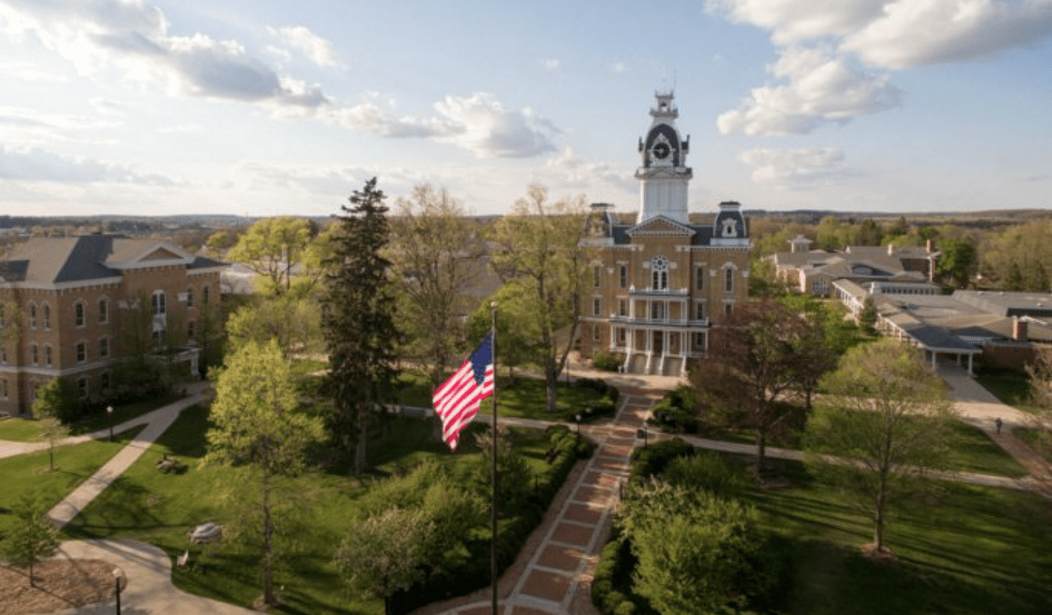This week, the University of Missouri agreed to pay $4.7 million to support the teaching of free-market Austrian economics at Hillsdale College, in order to honor the donor intent of the late Sherlock Hibbs. A Mizzou grad, Hibbs gave $5 million to his alma mater specifically to establish professorships on Austrian economics.
“The Hibbs case will have a resounding impact on higher education and giving,” Peter Herzog, lead trial counsel for Hillsdale College and partner at Wheeler Trigg O’Donnell, said in a statement. “Donors might reconsider or reevaluate institutions that are not like-minded in their missions and commitments. Colleges and universities will do what they want with your money unless you make sure they can’t.”
Hibbs, a 1926 University of Missouri graduate, made the bequest in his will before he died in 2002. He gave the money in order to establish three chairs, funded at $1.1 million each, and another three distinguished professorships, with two funded at $567,000 and another at $566,000. In each case, the professor must be a “dedicated and articulate disciple” of Austrian economics. Mizzou accepted the gift, yet more than a decade after his death, the express wishes of the bequest were not carried out, former Gov. Jay Nixon (D-Mo.) told PJ Media in July.
“$5 million was bequested for six positions. They currently don’t even have all of the positions filled: only four of the six are paid for,” the former governor explained. Worse, Mizzou’s leadership “never even embraced or really followed the intent of Mr. Hibbs.”
Hibbs, realizing that Mizzou may not follow through on his bequest, named Hillsdale as a guarantor. The university had to check-in with Hillsdale every four years, and if Mizzou wasn’t honoring the terms, the money would revert to Hillsdale.
“Donor intent is really important,” Nixon said. “Donors appreciate that the commitment of their generosity lives beyond their time on earth. When I looked at this, it was clear to me that the intent of Mr. Sherlock Hibbs was not being embraced or followed by the University of Missouri.”
In the settlement, Mizzou will pay Hillsdale the vast majority of Hibbs’ original gift. Mizzou will keep what it earned from investing the gift as part of its endowment. The settlement also prevents the university from charging the trust to defend the lawsuit.
The University of Missouri argued that its trustees could not be sued for ignoring Hibbs’ direction because they were “state actors” and therefore immune from litigation. In other words, because Mizzou is a state school, donors and their families had no recourse if their gifts went to programs the donor did not intend to support — even if the university contradicted his express wishes.
The Austrian School of economics follows the teachings of thinkers like Friedrich Hayek and Ludwig von Mises. It teaches that free markets working in an atmosphere of limited government and the rule of law will create more prosperity and spread it broadly. Many American conservatives subscribe to these teachings, and many Hillsdale professors teach it.
During the discovery phase of the lawsuit, Hillsdale uncovered emails demonstrating that Mizzou administrators sought to avoid granting professorships to free-market economists. Instead, the university redirected the funds to current professors whom it “verified” on its own.
“There was a lot of tension about whether or not they even wanted to try, much less effectuate the bequest,” Nixon argued.
Universities skew liberal, and few even teach Austrian economics. This settlement is a victory for the diversity of thought in education, as well as for donor intent.
Follow Tyler O’Neil, the author of this article, on Twitter at @Tyler2ONeil.









Join the conversation as a VIP Member